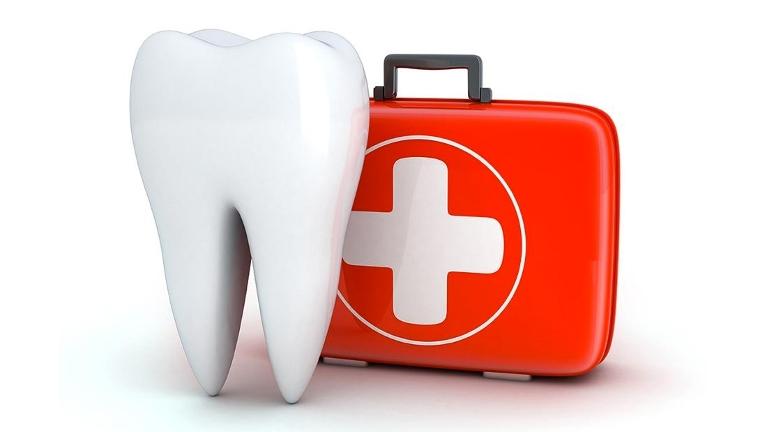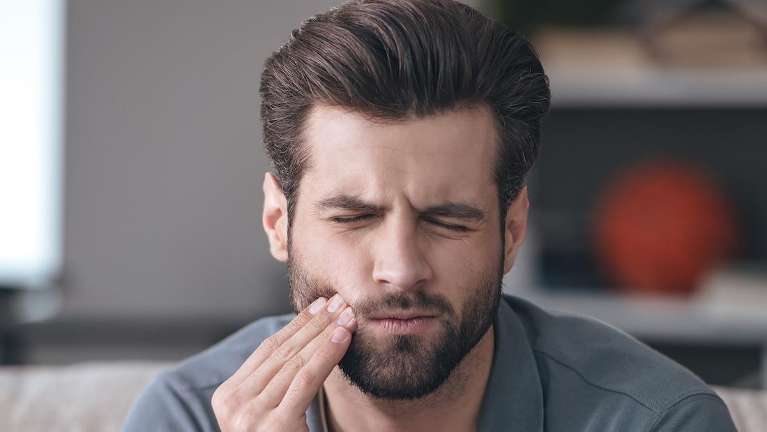
Some days are better than others. Maybe you woke up, and life has thrown everything at you, including the kitchen sink. You might feel like a big-league batter, and life is on the mound, peppering you with pitches: fastballs, knuckleball, and curves, and you’re swinging away hoping for a hit or even a home run. And sometimes, one of those pitches hits you full-on in the face, a little chin music that knocks you head over heels.
When you come around, you might be thinking, "Is this a dental emergency?" And if that 90-mph fastball has just knocked out a tooth, then you'll know for sure; you need urgent care. Other times though, it may not be so clear. But let’s begin with the definite emergencies.
There’s No Doubt; You Knocked Your Tooth Out
Many incidents can cause unexpected tooth removal. It could be an exciting, athletic, goal-line save or an adrenaline-fueled mountain biking crash. Or maybe you just tripped and fell on your face. Either way, we all know accidents happen. But if that results in a knocked-out tooth, then quick action is your top priority. On the other hand, if your tooth is intact, the sooner you see Dr. Richard Mancuso, the more likely it is that he can save your tooth. So, if you’ve found the missing tooth, here’s what to do next:
- Pick it up only by the crown. Don’t touch the root!
- If possible, gently reinsert it back into the socket.
- If you can’t put it back, then submerge the tooth in milk.
- Treat swelling with a cold compress.
- Get to your Tampa, FL, Emergency Dentist immediately.
If your child has knocked out a baby tooth, you may follow the same instructions, but talk to your dentist too. A baby tooth isn't permanent, so your caregiver can decide if it's worth trying to implant it again. After all, it may have been loose and ready to come out anyway.
When You Think It's Broken
The same incident that could knock out a tooth may chip, crack or break it instead. Depending on the severity of the break, this may be less of an emergency than a fully knocked-out tooth. If you’ve fractured a tooth, immediately clean the area by rinsing your mouth with warm water. If the area around the break swells, use a cold compress to reduce inflammation.
Dr. Mancuso may repair a broken or cracked tooth with tooth bonding resins, or he may recommend a crown instead. While a minorly broken tooth might be ok for a couple of days, you still should seek prompt care as any fracture will allow bacteria to penetrate your tooth and cause infection. You don’t want to let that infection spread.
But It HURTS! When Pain Constitutes an Emergency
When you feel pain, your body has a message for you: something’s wrong. When that pain is severe, that something may be very wrong. Yet, because pain is subjective, it's less clear whether pain in itself indicates that you need emergency treatment. The source of that pain may answer the question for you.
For example, an abscess, or tooth infection, is progressive so if you catch it early, say during a routine dental check-up, your dentist can resolve it without much fuss. But if you neglect an infection, it may become severe and require critical care. Here are some signs that signal an abscess is an emergency:
- Extensive swelling
- Fever
- Difficulty swallowing
- A sour taste in your mouth
That last one might mean the abscess has burst, releasing intense amounts of bacteria into your mouth and subsequently into your body. In this case, you might need antibiotics to avoid secondary infection, and you should contact a medical provider right away.
Other Less-Severe Injuries
Several other conditions may exist that you aren’t sure are an emergency. Examples of these are bleeding gums, minor toothaches, or other soft tissue injuries like cuts on your lips, tongue, or the inside of your mouth. The blood flow rate will go a long way for any bleeding injury to tell you if the problem needs immediate attention. The mouth is a fast healer if you are healthy, but you should always contact us with concerns. We can help.
Where that bleeding is from a cut inside your mouth, the best course of action is to clean the cut with clear water, apply a cold compress to slow the blood flow and avoid touching the injury with your fingers or tongue. If the cut is deep and bleeds persistently, you may need stitches, so you should contact your urgent care doctor without delay.
The Best Rule of Thumb? Talk to Your Dentist
Sometimes you have little doubt you’re going to need emergency care. However, when the situation is less clear, the best way to know is to talk to your dentist. Dr. Mancuso and his staff are always willing to advise you. So give us a call and provide details as to the incident and the symptoms you’re experiencing. With this information, Carrollwood Village Dental will be able to take care of your problems, regardless of whether they are an emergency or not. So don’t hesitate to contact us now.



